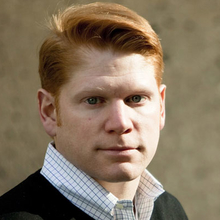China is Getting Better at Undermining Global Human Rights
Published by The Lawfare Institute
in Cooperation With

On Lawfare's feed at Foreign Policy, I wrote about how China has aggressively undermined key U.N. human rights mechanisms and how the Trump administration is enabling China's efforts. The piece begins:
Since taking office, U.S. President Donald Trump has managed to repeatedly steer the national conversation in all sorts of directions, from the merits of NFL protests to still-unproven allegations that his presidential campaign was wiretapped by the FBI. The national dialogue often lurches from one subject to another, which means that certain key issues are often more or less ignored.
Last month, Human Rights Watch, the leading U.S.-based human rights advocacy organization, released a comprehensive 96-page report on efforts by the Chinese government to manipulate and undercut key United Nations human rights mechanisms, both to shield itself from rights criticism and to protect its friends and allies. (Disclosure: I worked for Human Rights Watch over a decade ago as a researcher and remain a fan of its work.) The report, The Costs of International Advocacy: China’s Interference in United Nations Human Rights Mechanisms, failed to garner much attention, perhaps in part because it was competing against a White House noise machine that is louder than any other in American history.
Whatever the reason, it’s too bad that the report didn’t get more coverage. It tells an important story. For years, Chinese officials have used an array of tools to blunt criticism of its deteriorating human rights record. Most crucially, state security agents regularly warn Chinese activists against working with or even contacting U.N. human rights officials in Geneva. Some have even been detained in order to stop them from traveling to key U.N. meetings. Other activists who have managed to get to Geneva have been punished once they return. These tactics have taken a real toll: Many Chinese activists are reluctant to work with U.N. officials, or with the international nongovernmental organizations that feed information to U.N. bodies. As a result, U.N. experts seeking to review China’s rights record face difficulty in gathering information directly from human rights defenders themselves.




